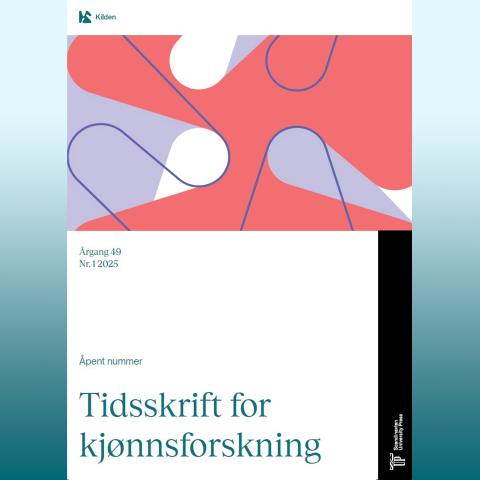The Journal of Gender Research: Open issue

The first issue this year is an open issue. But even though the articles are varied, all of them are aimed at hot topics in the public debate. The articles illustrate the breadth of the field of gender research and examine in different ways how power works. You can read about transmasculines' experiences of discussing their own desire for reproduction during treatment for gender incongruence. You can also read a discursive analysis of Christian conservative mobilization against teaching about gender in school, as well as about how gender and resistance can have a mobilizing effect in gender equality work in academia.
DOI: 10.18261/issn.1891-1781
Abstracts
Being a man in the doctor’s office – transmasculine people’s negotiation of gender and reproduction during treatment for gender incongruence
By Isak Løberg Jacobsen
This article explores the experiences of six transmasculine informants in discussing reproductive needs and wishes during treatment for gender incongruence. The interviews conducted with the informants show that transmasculine people feel that there are certain expectations regarding what a transmasculine person should want when it comes to their own reproduction, which affects their experience of being understood as legitimate in their trans identity during treatment for gender incongruence. The expectations, as described by the informants, are based on a binary understanding of gender, where pregnancy is portrayed as incompatible with a masculine (trans)gendered identity. The article argues that it is then perceived by the informants that there exists an expectation of a desire for sterilization during treatment, despite sterilization no longer being a requirement in Norway for changing legal gender.
Keywords: gender recognition act, sterilization, transmasculine, pregnancy, gender affirming treatment
Christian conservatives fight against gender education in schools
By Emilie Nancy Eiken og Janicke Heldal
This article presents findings from an investigation into the criticism of gender education in schools by Christian conservative groups. Using discourse analysis, we examine their arguments and strategies for opposing such teaching. The investigation reveals that their stance is based on a strict Christian conservative view of gender, perceiving the promotion of legal protections for LGBTQ+ and gender diversity as a threat to family values. Their primary strategy is to seek the right to exempt children from school during lessons on gender-related topics.
Keywords: gender education, Christian conservative, queer, LK20
Resistance and sensemaking: Collective learning as mobilization in gender equality work
By Siri Øyslebø Sørensen og Eva Amundsdotter
In this article, we examine how sensemaking about gender and resistance can contribute to mobilization for gender equality work in academia. The discussion is based on analyses of experiences from an action research project that has been aimed at creating cultural change as a means of making room for more women in male-dominated research environments. Cultural change involves the establishment of new patterns of action and perceptions. In the article, we argue that collective learning about gender can build a necessary foundation for change, while at the same time, collective learning about how resistance works and manifests itself is equally important, as a measure for mobilizing change in actions.
Keywords: gender equality work, gender research, cultural change, resistance, collective learning
Rage-baited by Russia? Putin and the western anti-transgender movement
(Commentary article)
By Mikkel Berg-Nordlie og Marthe Handå Myhre
Norway is Russia’s complete opposite when it comes to attitudes and policies regarding LGBTQ+. In addition, Norwegians tend to view Putin’s regime with a great deal of scepticism. Are there still signs that Russia succeeds in influencing or setting the agenda for Norwegian actors who share some of the attitudes to LGBTQ+ that the Russian regime promotes?
Keywords: soft power, Russia, antigenderism, anti-transgender movement, Russian influence, discourse, security, defence, security policy
Read the full issue at Scandinavian University Press (scup.com)